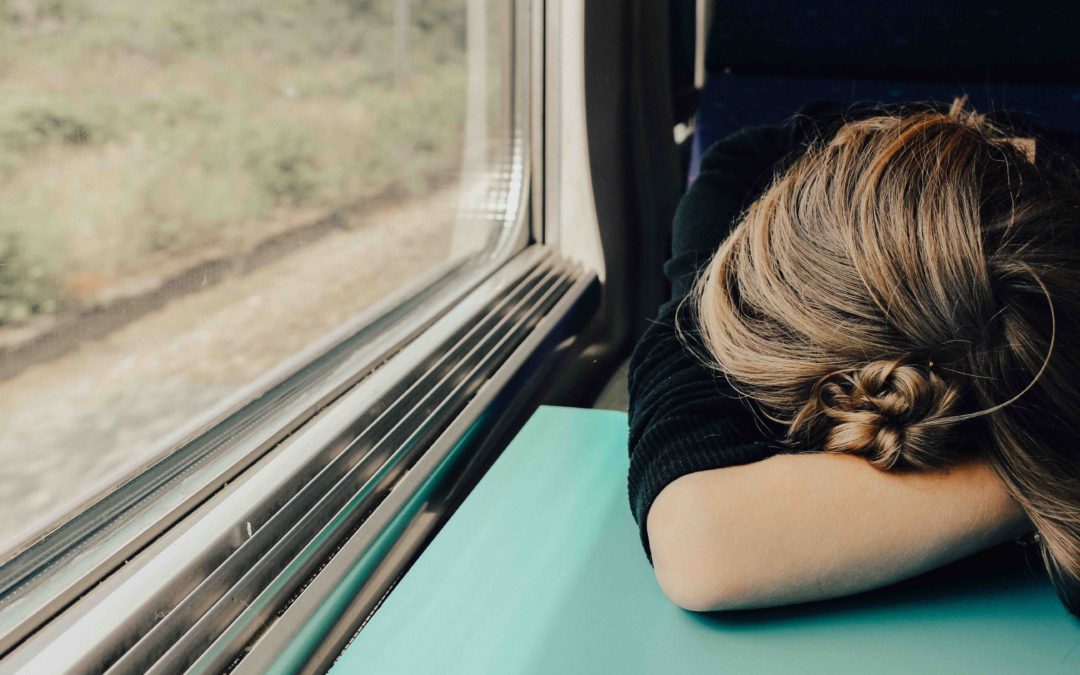- Anti-Racism Tip #8: If It Needs a Disclaimer, Don’t Say It - October 18, 2022
- On Tender Moments that Take Us By Surprise - May 18, 2022
- Finding Creative Ways to Exercise During the Pandemic - April 29, 2022
The pandemic has provided an important lesson in how to adapt.
For most of the pandemic, I have been surviving on between 3 to 6 hours of sleep per night. This lack of sleep is related to heightened anxiety affecting one of my children caused by the unpredictability of the pandemic. The disruption of the pandemic has understandably affected all of us in noticeable ways and so it makes sense that many kids, as well as adults, are experiencing anxiety relating to not quite being sure of what the future holds.
This sleepless period has brought back memories of the newborn years of both our children. I remember some of the impacts of lack of sleep back then were that I had trouble focusing, was moody, and had a very difficult time regulating my body’s temperature (I have memories etched in my memory of Robby’s confused expression when I would say that I was totally overheating and then within minutes of him opening the windows and turning down the heat, I would tell him I was freezing. So as the caring and responsive husband he is, he would run around, close the windows again and turn the heat back up).
Lack of sleep has been shown to be really problematic and have a variety of negative impacts on health, including that it:
- Impairs focus and ability to problem-solve
- Increases risks of diabetes and cardiovascular disease
- Increases weight gain
- Lowers immune function
During this sleep-deprived period, I have noticed that lack of sleep has impacted me in at least two significant ways:
- It has negatively affected my ability to stay fit (the struggle is real with the Quarantine 19)
- It has hindered my ability to focus, think creatively and to write
For the purposes of this article, I’m going to share some of the ways I have adapted to this chronic lack of sleep and the negative impact on my creativity.
The Link between Sleep and Creativity
One of my strengths is in bringing disparate ideas together and making creative connections between ideas that may be seemingly unconnected. I rely on this ability in order to come up with creative ideas to share and articles to write.
Unfortunately, during this pandemic, I have neither the time nor the ability to focus on big ideas or to find time to sit down and write. Due to the very little sleep I am getting each night, my morning writing time has been eliminated since the best I can do every morning is just roll out of bed and get started at work by 9 am. Prior to the pandemic, my morning’s started around 5:30 am and included a workout and on Tuesday mornings drafting a blog post before heading to work. Those days seem very far away now.
With the interrupted sleep schedule, the only time I can find to sit and write, is either late at night – when I am exhausted and can hardly keep my eyes open – or on weekends. Even finding time on the weekends, however, has been challenging because they are the only days I can sleep in and, so this also cuts into my morning creative thinking time.
Some Creative Adaptations to Lack of Sleep
In order to actually find time to write and publish some articles, I have had to learn and adapt in the following ways:
- Lower the bar: Prior to the pandemic, I had committed to get a new article out each week and was very diligent in sticking to this schedule. During the pandemic, there have been stretches of several months at a time that I haven’t been able to get anything written and ready for publishing. So I have had to adapt and accept that any time I get a new article out, it’s a win. I have had to accept that there will be weeks and months that I may not be able to get an article published. I have had to lower the bar, and for me, as a high achiever, this has not come easily.
- Be Flexible: My best and ideal time to write is in the mornings, however, with the limited number of hours of sleep I’m getting, I have had to adapt by realizing that if I want to write an article, I have to make time on the weekends or late at night to do so. These times are not my ideal times to write but they are the times that I can find. So if I’m serious about finding time to do some writing, which is something I really enjoy, I need to be flexible and realistic about the times that I can set aside to sit down and write.
- Pick different topics: The articles I like writing the most often require quite a bit of research – reading a book, spending time reading academic articles, or researching news and popular culture stories – and then critical and creative thinking about how the topics, lessons or theories are helpful and relate to something I have experienced or am experiencing. To write an article, I also require time and mental energy to bring the ideas together and craft an article to the standards that I expect of myself. Since I neither have the time nor the focus with so little sleep, I have realized that I need to change my approach and pick topics that don’t require as much research or as much creative thinking but are still interesting, reflective, informative and hopefully resonate with others.
- Change my mindset: It’s easy to get caught up in a self-pitying mindset or a mindset where you blame others for negatively impacting your life and undermining your goals and priorities. I have been stuck in this for a while now. But recently, I experienced my day of disgust as Jeff Olson calls it in the Slight Edge. So in the last couple of weeks, I have accepted that this period will be characterized by very little sleep and after accepting this I have found ways to start exercising again and found times to sit down and write as well. This shift in mindset is very powerful because it helps me feel more in control of the parts of my life that I can control.
The pandemic has been a challenging experience for all of us, in so many different ways. You may be stuck in a place where the reality created by the pandemic see pretty unsolvable. I totally get it.
For me, finding ways to creatively adapt to some of the constraints that I am living with has helped me feel a bit better, take more responsibility for my own well-being, and find ways to prioritize the things that are important to me.
For so many parents, and particularly women, this can be such a struggle. So I encourage you to lower the bar for yourself, be kind to yourself, be flexible and creative, and embrace a mindset that helps you find ways to adapt to the constraints you’re facing right now.
And hopefully soon, we’ll see each other on the other side of this difficult, unpredictable period.
We would love to hear your thoughts in the comments section below this article.
Photo by Abbie Bernet on Unsplash
If you liked this article, check out:


A beautiful and relatable analysis with constructive, doable suggestions that are important to incorporate even when the pandemic is finally over. #covidblessings
Thanks Tina! This pandemic has challenged us all in so many varying ways. I appreciate the kind words and also the idea of taking account of the positive things we can learn from the pandemic.